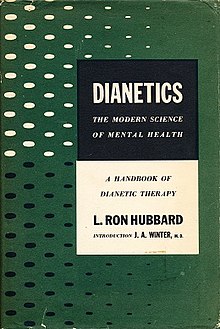Little Known Facts About Dianetics.
Little Known Facts About Dianetics.
Blog Article
Not known Details About Dianetics
Table of ContentsSome Known Factual Statements About Dianetics Not known Facts About DianeticsThe 5-Minute Rule for DianeticsAll about Dianetics
I could not ever before not want to receive anything that comes to mind for you- if it was or else, I would not be sitting here with you, doing this. I not just can never have a problem, or not desire to listen to something that comes to mind for you, but I'm entirely excited to know every concept, every thought, every image or sensation that arises or manifests for you- do not ever think or else, and if for some factor you do, please just allow me recognize! Sometimes, you might have a thought, and image, concept or case appear that does not seem to answer the inquiry, or connect to it, yet nonetheless, always do inform me regarding it, and as we continue, the significance will emerge for you.This is fundamental in the basis of handling, and the topic of this discussion: the fundamental roles of the counselor and the customer: The basic duty of the counselor is, in contrast to "typical training", not to manage, which means to apply and/or inhibit, yet to instead work from the basis of EMPOWERING THE CUSTOMER.

Not known Details About Dianetics
John Mcmasters shared this fundamental fact incredibly well in among his lectures on Power handling, in which he discusses just how he was asked what this "special propensity" was that he had for offering such wonderful sessions; he had to consider that for a minute, and found that it was what he had not been doing, as well as what he was doing: he wasn't reviewing, judging, computing, or actually, generating any type of ideas, let alone verbal expressions, after providing the command and while waiting for the PC to complete their solution to their fulfillment; he was, merely and only, being existing with the computer, and completely interested.
The role of the counselor, showed; that was his "unique flair". I have actually had my own experience which educated me this well, very at an early stage in the game. In 1982, having just recently finished my training and internship on New Era Dianetics, I was running this on a PC, and there was a point in the session where (being a bit wet behind the ears not yet having lots of hours under my belt as a specialist auditor) the PC seemed to be "taking too long" to express anything verbally after I provided him a command.
This key became one of the most beneficial payment that John ever made to the topic of therapy my site or auditing (Dianetics). In my humble point of view, it is the biggest contribution that anyone has ever made to these subjectsthe application is completely non-judgemental, non-evaluative, and empty of any kind of pointer, suggestions or opinion.no preconditioned program for people, or 'levels' that they must do
In Scientology we prided ourselves on not examining for people. All that really meant was that the auditor did not Vocally evaluate for the Computer in session.
Dianetics Fundamentals Explained

Any individual who had ever before seen John audit might not help however notice an one-of-a-kind high quality in his bookkeeping."The client's standard role is to be there with the objective of relocating the instructions of their spiritual goals, and to openly and fully share and experience whatever manifests for them in responding to the questions and carrying out the guidelines in the processing.
This is something to procedure as needed. Additionally, individuals frequently have prior experience and/or indoctrination in auditing/processing which, in some methods, and to some levels, actually misinforms them right into mindsets, ideas and behavior patterns that stop the complete realization of these roles, and so they will tend to prevent the expressing have a peek here of what comes to mind, as in the instances provided above - Dianetics. * The initial, and possibly primary instances of mis-indoctrination leading to less than entirely smooth and effective sessions, can be discovered in certain elements of the training routines, or "TR's":"TR's" are usually a person's first, or a minimum of early, experience in Scientology, and while I will go on to discuss what I see as the defects in concept and practice, nevertheless, tend to be considerably restorative, done as they are provided (Hubbard insists that "TR's are not processing, they are training", but factually, they are both handling AND training)
There is no "failing", and no denial of the reality of this being handling. The emphasis, as it needs to be, is on experiencing the various other person's visibility.
The 9-Second Trick For Dianetics

Report this page